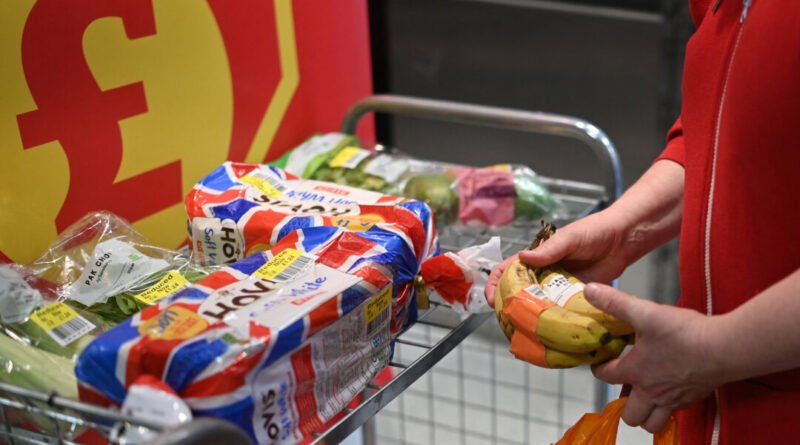Food Inflation at Lowest Level Since December 2021: Report from BRC
June witnessed a significant uptick in retailers investing in their operations and supply chains, as well as engaging in heavy discounting to drive sales.
According to the British Retail Consortium (BRC), food inflation has dropped to its lowest level since December 2021. This decline was attributed to reduced costs for key items like butter and coffee.
Recent data from the BRC and NielsenIQ’s shop price index indicated a decrease in inflation from 3.2 percent in May to 2.5 percent in June.
Consumers experienced a 3 percent average food price decrease, marking the 14th consecutive deceleration and the lowest food inflation rate since December 2021.
Both fresh and ambient foods saw prices drop below the three-month average, reaching record lows in June. Fresh food inflation decreased to 1.5 percent, the lowest rate since November 2021. Ambient foods, such as pasta and spices, experienced a drop from 4.8 percent in May to 3.9 percent in June.
In the wake of global supply chain disruptions and market instability due to various geopolitical events, retailers have been heavily investing in their operations and supply chains to mitigate input cost impacts.
BRC Chief Executive Helen Dickinson highlighted the positive outcomes of these investments, with shop prices rising only 0.2 percent in the past 12 months. She emphasized the role of falling prices for key products in driving down food inflation.
Retailers and Policymakers
Throughout June, retailers focused on boosting sales through discounting, leading to deeper deflation in non-food prices. This trend was evident in sectors like TV sales, as retailers sought to capitalize on the excitement surrounding the UEFA European Football Championship.
The slowdown in food price inflation news arrived just days before the general election. Economic growth and efforts to address inflation, interest rates, and the cost-of-living crisis are key components of political parties’ manifestos.
The BRC urged the incoming government to tackle major cost burdens on the retail industry, including the business rates system and the apprenticeship levy, to enable retailers to invest in lower prices and alleviate cost-of-living pressures.
Although shop price inflation eased from 0.6 percent in May to 0.2 percent in June, it remains the lowest annual growth since October 2021. The competition in the marketplace is expected to keep price increases minimal throughout the summer.
Despite the downward trajectory of food costs, an increasing number of Britons continue to rely on food banks for assistance. The Trussell Trust reported a 37 percent increase in emergency food parcel distribution from April 2022 to March 31, 2023.
Trussell Trust’s Chief Executive Emma Revie emphasized the need for a supportive social security system, stating that food banks should not become the new norm.
PA Media contributed to this report.




